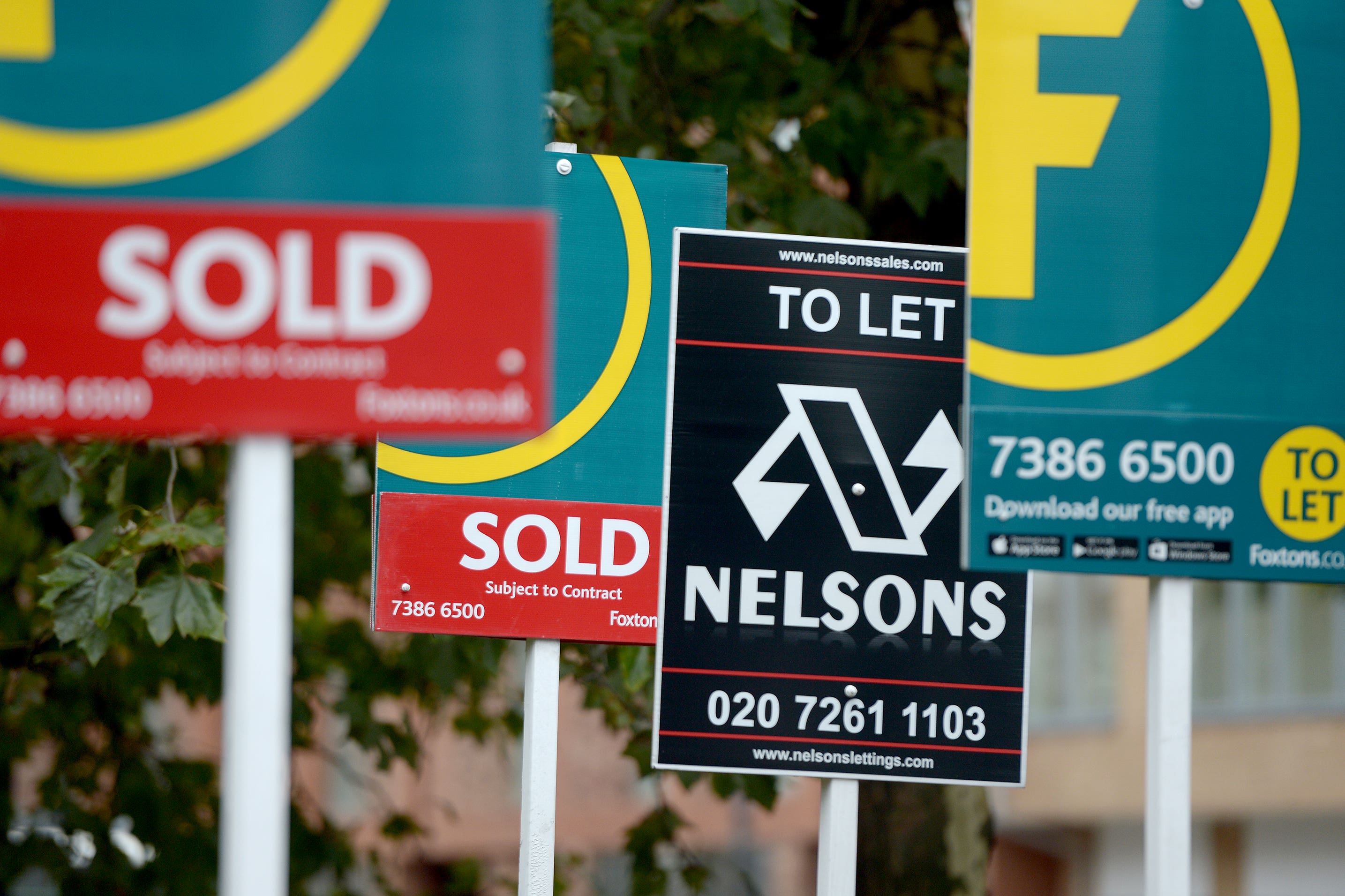Can first-time buyers be bought with a ‘99 per cent mortgage’?
Jeremy Hunt’s big idea to help young people to own their own home will tackle the biggest problem facing many: raising a deposit. But it will also heat up the entire housing market, says James Moore


Could Jeremy Hunt have found the Tories a magic spell powerful enough to save their skins?
The chancellor is considering guaranteeing 99 per cent mortgages to help young people get onto the property ladder, The Independent has revealed.
This is to all intents and purposes a reheated version of the Help to Buy scheme, of which there have been several versions over the years with several names attached to them. Common to all of them, however, is that they have attempted to tackle the biggest hurdle preventing younger people from getting onto the property ladder: finding the cash for a deposit.
If Hunt presses ahead with this policy, it would be Help to Buy Max. It is one of the most buyer friendly schemes yet. The 100 per cent mortgage is as rare as a vegetarian tiger in the current market.
Let’s look at some of the relevant numbers to show why this matters.
The Land Registry puts the average price of a UK property at £284,950. For a standard 90 per cent mortgage, you would need to find £28,495 for the deposit. For a 95 per cent loan, that falls to £14,248 (rounding up). Even if you consider a cheaper property, at say £200,000, we’re still talking £20,000 or £10,000 for a 95 per cent loan.
These are heady sums when you consider that the median average UK salary is roughly £35,000, from which rent, bills, student loan repayments (potentially), credit card repayments, food, clothing, and everything else has to be taken out of. And younger people, obviously, tend to earn less.
The deposit hurdle has therefore become, for those without access to the Bank of Mum & Dad LLC, more of an Aintree Grand National fence. And I’m thinking here in terms of the big bad: the infamous Chair. For an increasing number of unhappy renters, it is worse than that. It is simply an insurmountable barrier.
There are always shared ownership schemes, where you buy a percentage of a property and pay a landlord rent on the rest. But critics have described these as “the worst of all worlds”. And it is not hard to see why.
As for the small number of 100 per cent mortgages out there – the ever reliable financial data company Moneyfacts lists just 17 – most require a guarantor of some description. So the Bank of Mum & Dad (again). And they can be quite pricey to boot.
Higher loan to value mortgages generally carry a premium price because they are risky for lenders. To illustrate that, let’s instead take 95 per cent mortgages. There are quite a few more of those about, so it’s easier to calculate meaningful averages. Moneyfacts listed 273 products at the time of writing. For the two-year fixes among them, the average price was 5.92 per cent against 5.63 per cent for a 90 per cent mortgage (there were more than twice as many of those on the market). For five-year deals the figures were 5.43 per cent and 5.35 per cent respectively.
If the government becomes the guarantor for a 99 per cent mortgage, however, it changes the game. First off, your deposit becomes much more manageable: £2,850 on our average property and just £2,000 on our cheaper starter home. The premium you pay on the interest rate should, in theory, come down too.
This suddenly makes home ownership a lot easier for a lot of frustrated younger voters. Enough to change the electoral calculus? Well that is an open question. But property can certainly move the dial. It did Margaret Thatcher no harm when she unveiled plans to allow people to buy their council houses.
Of course, we now know that flogging off the nation’s stock of social housing came with a sting in its tail, and a nasty one too: it has left the UK with a profound shortage of properties at affordable rents.
Help to Buy, in whatever guise, comes with a sting in its tail too. Just ask housing charity Shelter, which said of previous schemes: “The fundamental problem with Help to Buy is that it tries to solve the problem of unaffordable house prices by making it easier for potential buyers to access a mortgage. As the amount of mortgages issued are a key driver of house prices, the schemes push up prices further.”
And why does it do that? Because Britain isn’t building enough new homes for the number of people wanting to buy them. More people chasing the same number equals higher prices. Market economics 101.
Of course, Hunt might not view house prices going up just before an election as necessarily a bad thing. People who already own their homes like it a lot. It makes them feel good about their financial position and gives them the confidence to spend.
His shadow Rachel Reeves could, of course, counter this wheeze by promising a scheme of her own or by pledging to press ahead with something very similar to Hunt’s plan.
The housing crisis will eventually bite back at whichever of them ends up in No 11 this year or next. It always does. Britain simply doesn’t have enough homes to go around. Nimby MPs, from Hunt’s party in particular, have had a nasty habit of frustrating attempts to address the issue. But that is a perennial problem. In an election year, perennial problems can go hang.






Join our commenting forum
Join thought-provoking conversations, follow other Independent readers and see their replies
Comments